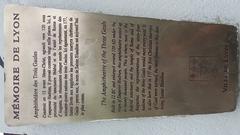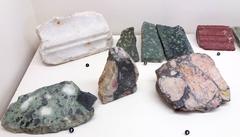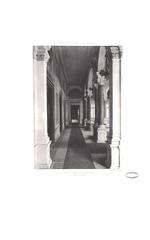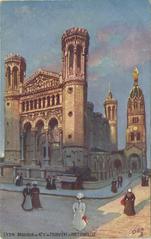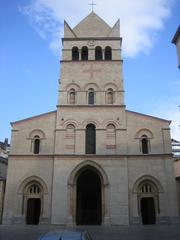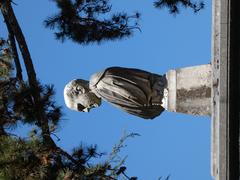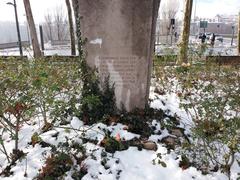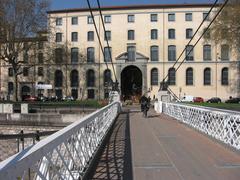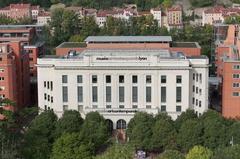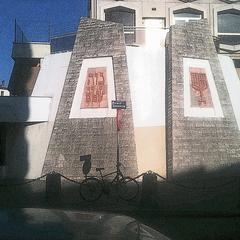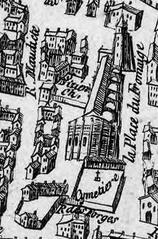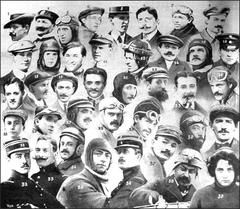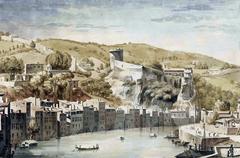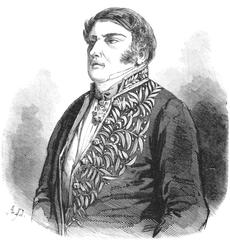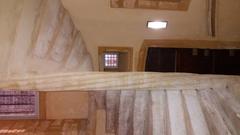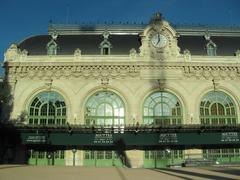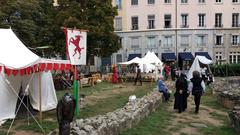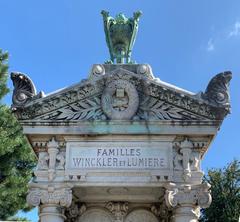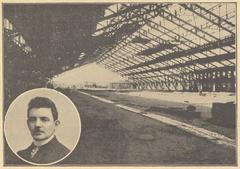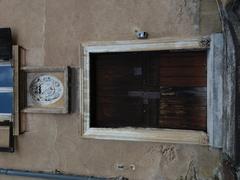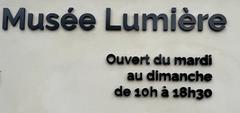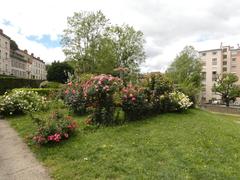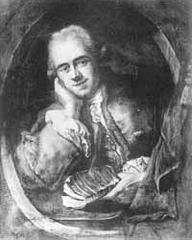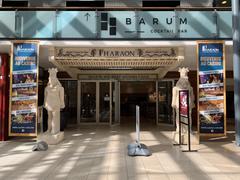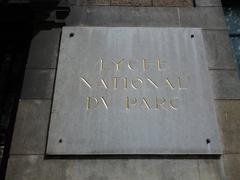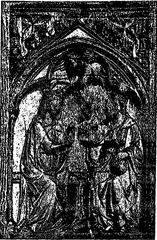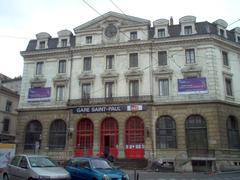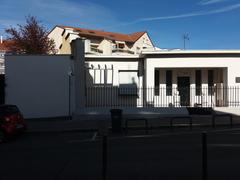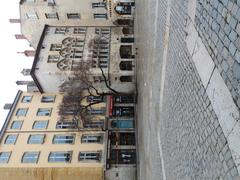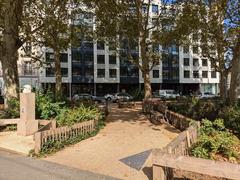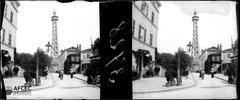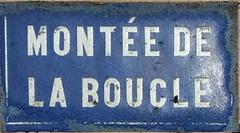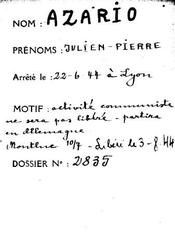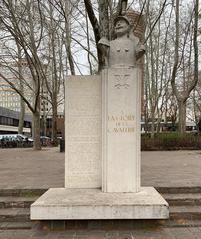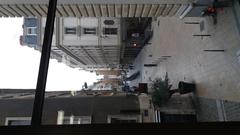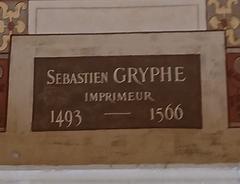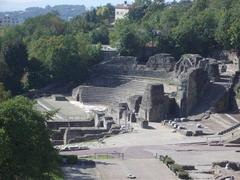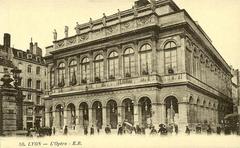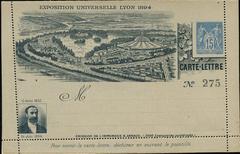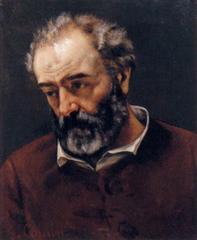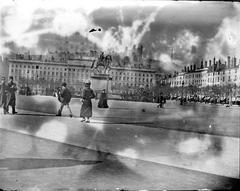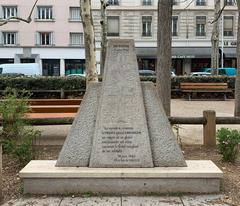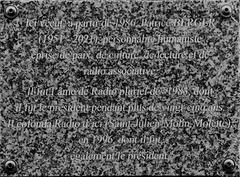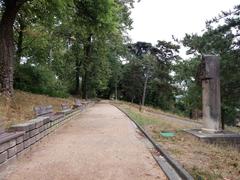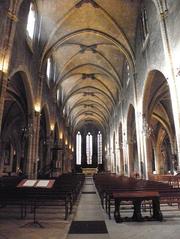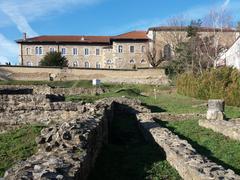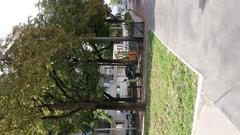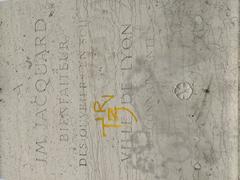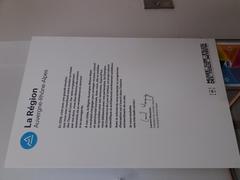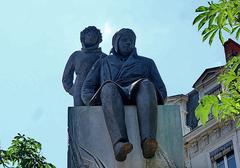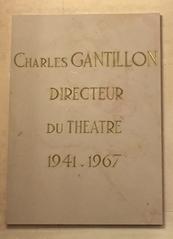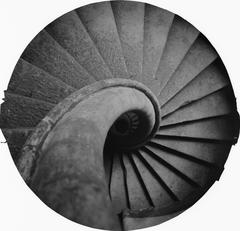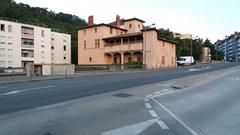
African Museum of Lyon: Visiting Hours, Tickets, and Historical Sites in Lyon
Date: 04/07/2025
Introduction
Nestled in the vibrant city of Lyon, France, the African Museum of Lyon (Musée Africain de Lyon) was a pioneering institution dedicated to preserving, educating, and celebrating sub-Saharan African cultures, especially West African heritage. Established in 1861 by the Society of African Missions, the museum was among the earliest in France to authentically document and share the material culture of African societies encountered through missionary and intercultural exchange. Over its more than 150-year history, its collection of over 2,100 artifacts—including ritual masks, royal emblems, musical instruments, and everyday tools—offered visitors immersive insight into African daily life, social structures, and spiritual traditions.
The museum also served as an educational hub, fostering dialogue and community engagement, particularly with Lyon’s African diaspora. Its evolution reflected broader shifts in museology, ethics, and Franco-African relations, culminating in its transformation into the Carrefour des Cultures Africaines, a cultural center and library dedicated to African heritage. Although the African Museum of Lyon closed in 2017, its legacy continues through the Carrefour des Cultures Africaines and other Lyon institutions, including the Musée des Confluences and Musée des Beaux-Arts, which highlight Africa’s artistic and cultural contributions in a global context.
This guide provides a detailed exploration of the African Museum of Lyon’s history, collections, cultural significance, practical visiting information, and its enduring impact within Lyon’s array of historical sites. Whether you are a history enthusiast, cultural explorer, or a member of the African diaspora, this article will help you appreciate and navigate Lyon’s African heritage and its contemporary successors. For additional details, see France-Voyage and WhichMuseum.
Historical Timeline and Institutional Evolution
Founding and Early Development (1861–1900)
The museum was founded in 1861 by the Society of African Missions (Société des Missions Africaines) to document and foster understanding of West African cultures. Melchior de Marion Brésillac, its founder, envisioned a collection that reflected the rich cultural heritage of African societies. His successor, Augustin Planque, expanded the collection by encouraging missionaries to collect artifacts representing daily, social, and religious life in West Africa, especially from the Gulf of Guinea.
Growth of the Collection and Institutional Role
By the early 20th century, the museum’s collection had grown to over 2,100 objects, including fishing tools, textiles, musical instruments, royal regalia, ritual masks, and more. These items reflected both traditional African practices and the influence of Catholic worship, creating a comprehensive ethnographic and anthropological record. The museum became an educational resource, offering thematic galleries—Everyday Life, Social Life, and Religious Life—to scholars, students, and the public.
Architectural and Spatial Evolution
Located at 150, Cours Gambetta, the museum underwent extensive renovations in the late 20th century, culminating in a 2001 reopening. The upgraded 750-square-meter space modernized exhibition areas and improved artifact preservation to contemporary museological standards.
Shifts in Management and Mission (1998–2017)
From 1998, the museum emphasized accessibility and community engagement. In 2012, governance shifted from the Society of African Missions to the secular Association du Musée Africain de Lyon. This reflected broader French trends toward inclusive museum management. The museum hosted temporary exhibitions, educational programs, and events, supported by a specialized library for African studies researchers.
Closure and Legacy (2017–Present)
The museum closed on November 27, 2017, due to financial and institutional challenges. However, its legacy persists through the Carrefour des Cultures Africaines, which continues to offer access to its library and serves as a vibrant center for African cultural exchange. The collection is preserved for research and possible future exhibitions, and Lyon’s cultural landscape remains enriched by the museum’s historical role.
Visiting the African Museum of Lyon and Its Successors
Current Visiting Information
- African Museum of Lyon Status: Permanently closed since 2017.
- Successor Institution: Carrefour des Cultures Africaines, located at the same site, provides access to the library and hosts African cultural events.
Carrefour des Cultures Africaines
- Opening Hours: Tuesday to Saturday, 10:00 AM–6:00 PM
- Admission: Free
- Accessibility: The building is accessible for visitors with reduced mobility.
- Location: 150, Cours Gambetta, Lyon, easily accessible via Lyon’s public transport.
- Contact: For up-to-date hours and event schedules, visit the center’s official website.
Guided Tours and Educational Programs
While the museum no longer offers guided tours, the Carrefour des Cultures Africaines continues to host cultural events, workshops, and educational programming.
Nearby Attractions
- Musée des Confluences: A major science and anthropology museum with significant African collections (Musée des Confluences)
- Musée des Beaux-Arts de Lyon: Includes African and ancient collections (Musée des Beaux-Arts)
- Lyon Old Town (Vieux Lyon) and Basilica of Notre-Dame de Fourvière: UNESCO World Heritage sites (UNESCO)
The African Museum of Lyon in Context
Representation and Cultural Significance
The museum’s extensive collection showcased the diversity of West African societies, with artifacts ranging from domestic utensils and agricultural implements to ceremonial masks, musical instruments, and spiritual objects. Exhibits were arranged into three themed galleries:
- Everyday Life: Tools, textiles, and household items reflecting daily realities.
- Social Life: Masks, musical instruments, regalia, and symbols of authority.
- Religious Life: Ritual objects, fetishes, ancestor figures, and shrine models.
Educational Mission and Community Engagement
Throughout its history, the museum actively engaged schools, researchers, and Lyon’s African diaspora through workshops, lectures, and temporary exhibitions. It challenged stereotypes and fostered nuanced understanding of African cultures (France-Voyage).
Transition to Carrefour des Cultures Africaines
Reflecting global trends in museum ethics, the museum’s transition to a cultural center prioritized collaboration, accessibility, and community engagement. The Carrefour des Cultures Africaines provides free access to an African library and serves as a platform for cultural dialogue and events (France-Voyage).
Thematic Impact
- Restitution & Decolonization: The museum’s transformation aligns with international calls for the restitution of African heritage (AEDIC).
- Diaspora Engagement: It remains a hub for Lyon’s African communities, fostering intercultural dialogue (France-Voyage).
- Urban and Global Significance: The institution underscores Lyon’s cosmopolitan identity and reflects global shifts toward participatory, ethically conscious museum practice (UNESCO).
Frequently Asked Questions (FAQs)
Q: Is the African Museum of Lyon open to visitors?
A: No, the museum closed permanently in 2017. Its successor, the Carrefour des Cultures Africaines, is open Tuesday to Saturday, 10:00 AM to 6:00 PM.
Q: Are tickets required?
A: Admission to the Carrefour des Cultures Africaines is free.
Q: Is the site accessible to people with disabilities?
A: Yes, the building is accessible for visitors with reduced mobility.
Q: Where can I see African art in Lyon?
A: Visit the Musée des Confluences and Musée des Beaux-Arts de Lyon for African collections.
Q: Are guided tours available?
A: The museum no longer offers guided tours, but the Carrefour des Cultures Africaines hosts cultural events and workshops.
Q: Can I visit the former museum building?
A: The building now houses the Carrefour des Cultures Africaines and is open to the public for library access and events.
Visuals, Media, and Online Resources
For an enriched understanding, explore high-quality images of key artifacts, the museum’s historic building, and exhibition layouts. Interactive maps and virtual tours are available online. Use descriptive alt tags such as “African Museum of Lyon artifacts” or “West African mask Lyon museum” for accessibility and SEO.
Summary and Visitor Tips
The African Museum of Lyon was a landmark of cultural preservation, education, and intercultural dialogue. Its transformation into the Carrefour des Cultures Africaines ensures that African heritage remains accessible and dynamic in Lyon. While you can no longer visit the original museum, you can engage with African cultures through the Carrefour, Musée des Confluences, and Musée des Beaux-Arts.
Visitor tips:
- Check the Carrefour des Cultures Africaines’ website for current programs and hours.
- Use Lyon’s excellent public transport to access cultural sites.
- Allocate time to explore Old Lyon and other UNESCO-listed sites for a complete cultural experience.
Sources and Further Information
- France-Voyage, African Museum of Lyon
- WhichMuseum, Musée Africain de Lyon
- UNESCO World Heritage Centre: Lyon
- AEDIC: 2025 The Year of African Cultural Heritage Restitution and Global Collaboration
- Tourist Secrets: Meet Lyon, France’s Second City
For additional information on Lyon museums, see Musée des Confluences, Musée des Beaux-Arts de Lyon, and Lyon’s official museum listings.







